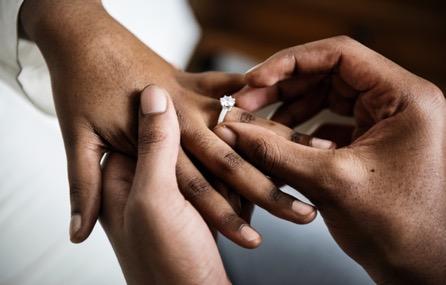
-
Register
All you need is a Jump.AFRICA account
With your Jump.AFRICA account, you can use all our services, current and future...
Register
Welcome to the Jump.AFRICA Community
- Login
- EN
Politics (African)1 posts
Sack of 74 parties: Implications for INEC, voters
Last Friday denoted the stopping point for 74 purported ideological groups. The Supreme Court, Nigeria's court of the last occasion, drove the nail in the casket for the striving political gatherings when it managed on the allure brought by Nigeria Unity Party (NUP).
The Independent National Electoral Commission (INEC) had in February a year ago banished the political stages from taking part in races in the nation following their absence of worthiness by the electorate during the 2019 general races. Yet, accepting that the protected specification for the opportunity of affiliation removes INEC's ability to enlist and deregister, NUP rushed to court to upswing the 'extreme choice.'
One of the decisive periphery ideological groups, the United Progressive Party (UPP), considered the to be to challenge INEC as a pointless pursuit. Heads of the gathering met, immediately collapsed camp, and intertwined into the overseeing All Progressives Congress (APC).
NUP disregarded UPP's apparent bashfulness and proceeded with the legitimate contestation. Not even the Court of Appeal judgment that maintained INEC's activity was sufficient to discourage the appellants from proceeding with the suit for inversion.
In any case, a curious bend in the matter arose when around 22 out of the 74 dismissed gatherings moved toward the court, bringing up that INEC didn't follow the set down techniques in deregistering them. Scarcely three months to the last Edo State governorship survey, correctly on August 10, 2020, the Court of Appeal maintained the contention of the 22, saying that INEC blundered in law by prohibiting the gatherings.
Endeavors by the 22 troubled gatherings to exploit the Appeal Court administering by partaking in the Edo State gubernatorial political race met a block facade. INEC wouldn't modify the discretionary interaction to oblige them, battling that not just had the cycle gone past conceding new stages yet in addition that it means to bid against the judgment.
It would be reviewed that while consenting that INEC, by ethicalness of Section 225(a) of the 1999 Constitution, as changed, saves the ability to disclaim the enlistment of any ideological group, the redrafting court scowled that the deregistration of the 22 gatherings was executed with "most extreme hatred and dismissal for the fair treatment of law and the court."
Maybe, by that appearing to be an indecisive decision, INEC continued to the peak court to challenge the request for the court underneath, encouraging it to relist the deregistered 22 ideological groups notwithstanding their clear poor electing appearing in the 2019 surveys.
By the express arrangement of Section 225(a), an ideological group could be delisted from INEC's register of gatherings "in the event that it neglects to succeed at least 25% of votes cast in one condition of the alliance in an official political race, or one Local Government Area in a governorship political race, or inability to succeed at least one ward in a chairmanship political decision, one seat in the National or State House of Assembly political decision or one seat in the councillorship political race."
INEC, in its allure, demands that Section 225(a) whips whatever hatred and negligence for the fair treatment of law and the court that the delisting of the 74 gatherings, the 22 comprehensive, may have occasioned.
It is left to be seen whether the result of INEC's forthcoming allure at the pinnacle court against the August 10, 2020 decision of Abuja Court of Appeal would deliver an opposite decision, to upswing last Friday's judgment or whether it would add up to the Supreme Court turning around itself.
In the judgment conveyed by Justice Adamu Jauro, the Supreme Court maintained a prior judgment by the Appeal Court, which endorsed INEC's deregistration of NUP and 73 others, pronouncing that the system adjusted with surviving laws.
Addressing columnists not long after using the enormous hatchet on the 74 gatherings, INEC administrator, Yakubu Mahmood, clarified that the commission made a move as a feature of its arrangements for the coming 2023 general political decision cycle.
While asserting the July 29, 2020 decision of the Court of Appeal, the Supreme Court noted ahead of the pack judgment read by Justice Chima Nweze that INEC appropriately practiced forces gave on it by the Nigerian constitution in deregistering the gathering.
Suggestions
THERE are numerous ramifications of shedding the abundance weight of 74 mushroom political gatherings, both for INEC and the electorate. Since the time Gani Fawehinmi got lawful triumph over INEC in 2002 on gatherings, legislators overwhelmed the discretionary commission with numerous applications.
In the judgment followed through on July 26, 2002, the Court of Appeal Justices Dahiru Musdapher, M. S. Muntaka-Coomassie, held that the Constitution of an affiliation looking to be enlisted as an ideological group should take cognizance of the arrangements of S. 223 of the Constitution.
"Some other condition specified by INEC would give off an impression of being opposite or notwithstanding the sacred prerequisite. In the other option, it is presented that INEC has expanded, abridged, or corrected the protected arrangements alluded to above in making these conditions.
"Where a privilege has been presented by the Constitution, it can't be removed by some other legal arrangement aside from the actual Constitution and any law so made is void to the degree of its irregularity," the court kept up.
Be that as it may, 16 years after the decision, which opened the conduit for mushrooming of ideological groups, the National Assembly surveyed the Constitution and included Section 225, which solidified the legal system for INEC to control ideological groups.
It was the full power of Section 225 that the Supreme Court released against 74 political gatherings to liberate INEC from the encumbrances of a fake number of gatherings.
As per Section 225, "An ideological group could be delisted from INEC's register of gatherings on the off chance that it neglects to succeed at least 25% of votes cast in one condition of the organization in an official political race, or one Local Government Area in a governorship political decision, or inability to succeed at least one ward in a chairmanship political race, one seat in the National or State House of Assembly political race or one seat in the councillorship political race."
With the rational number of gatherings, INEC would, at this point don't refer to the number of gatherings to legitimize humongous sum in its financial plan for the arrangement of political race coordinations. Additionally, the voting form would be more minor and consequently superficial for citizens to choose their gathering of inclination.
Aside from saving balloting time, the more slender number of gatherings would diminish the number of invalid polling forms brought about by ink blotches during collapsing. Further, with only 18 gatherings out of which fewer few could handle competitors, citizens would be better positioned to assess applicants and settle on educated decisions.
Accordingly, the expulsion of 74 gatherings out of INEC's register comprises an alleviation to the discretionary umpire and a shelter to citizens.
Bye-races
Maybe, cheerful by the new catalyst, INEC recently reported its readiness to lead extraordinary bye-races in the nation, starting from the Sabon-Gari Constituency in the Kaduna State House of Assembly.
In an explanation soon after the summit court judgment, INEC reported June 19, 2021, for the Kaduna Constituency bye-political decision brought about by the failure of the official addressing the territory to get together the 187 days most minor participation.
It would be reviewed that after it announced Hon. Aminu Abdullahi Shagali's Sabon Gari State Constituency seat empty, the Kaduna State House of Assembly sent correspondence to INEC, that Hon. Aminu Abdullahi Shagali's seat was empty.
In an articulation by its representative, Festus Okoye, INEC clarified: "The opportunity happened because of the legislator's nonattendance without worthwhile motivation from 33% of the gatherings of the Assembly for one year in negation of Section 109 (1)[f] and (2) of the Constitution of the Federal Republic of Nigeria, 1999 (as changed)."
Against the foundation of the arranged bye-political race for the Sabon Gari state voting demographic, sources inside INEC uncovered that the Kaduna bye-political decision would clear "some legitimate spider webs" for a comparable exercise in Edo State, where the State House of Assembly likewise conveyed the electing umpire on the empty seats of the 12 non-attendant officials choose.
Albeit 12 officials choose to avoid the initiation for near two years, two others went along with them in a matter of seconds before the November 19, 2020, gubernatorial survey in Edo State.
In December 2019, the obstinate individuals' seats were announced empty by the Speaker of Edo State House of Assembly, Hon. Forthright Okiye, after they neglected to regard the governing body's approach, them to go up to be introduced.
Favoring one side in the political incomparability between Governor Godwin Obaseki and previous public executive of All Progressives Congress (APC), Comrade Adams Oshiomhole, the 12 administrators repelled suggestions them to submit to the Assembly initiative. They demanded that the lead representative make a second decree for a new appointment of floor functionaries to occur.
The individuals who avoided the House of Assembly incorporate Vincent Uwadiae,(Ovia North-East 2); Ugiagbe Dumez,(Ovia North-East 1); Washington Osifo,(Uhunmwode); Victor Editor,(Esan Central); Kingsley Ugabi, (Etsako East); Michael Ohio Ezomo, (Owan West) and Sunday Aghedo, (Ovia South-West).
Others are Chris Okaeben (Oredo West), Crosby Eribo (Egor): Aliyu Oshiomhole (Etsako West 2): Oshomah Ahmed (Etsako Central), and Ganiyu Audu (Etsako West 1).
The 12 truant legislators chose to go to court looking for a request convincing Governor Obaseki to make a new announcement. As per them, the Assembly's mode around evening time didn't adjust to parliamentary strategies.
Do not miss out! Click here to join our discussion.
 Back
Back
 Home
Home







